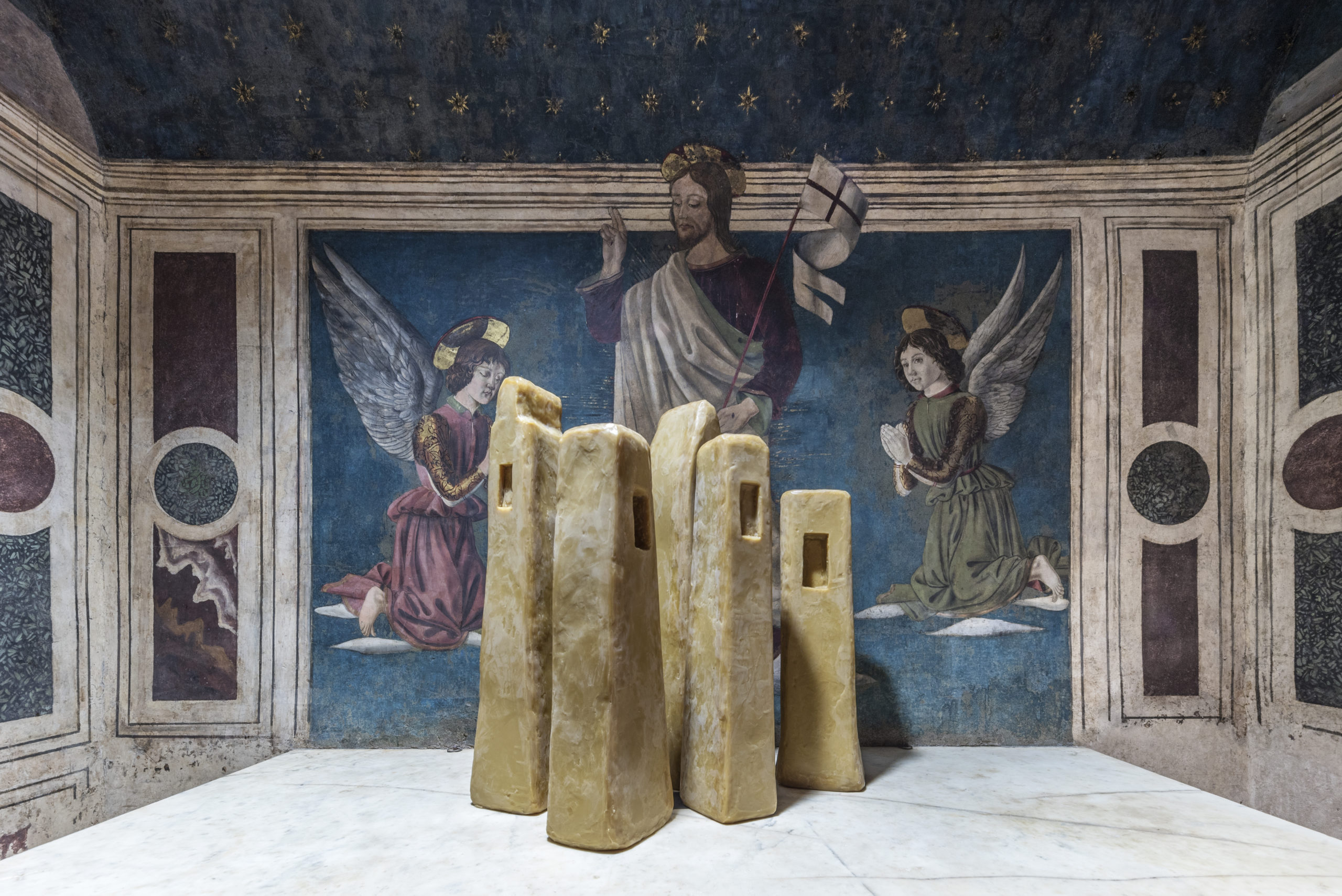Where and when
Orario
21:30
Museo Novecento
Who
Tommaso Sacchi
Councilor for Culture, Fashion, Design and International Relations of the City of Florence
Stefano Casciu
Director Polo Museale della Toscana
Sergio Risaliti
Free entry
In absolute first vision Wolfgang Laib. Without Time, Without Place, Without Body, the film dedicated to the exhibition project created by the German artist who created one of the largest solo exhibitions in recent years in Florence, occupying prestigious cultural institutions in the city.
The film, commissioned by the Museo Novecento and produced by MUS.E, was made on the occasion of the homonymous exhibition, curated by Sergio Risaliti, which involved places of extraordinary historical-artistic value such as the Museum of San Marco (Polo Museale della Toscana ), the Magi Chapel (Palazzo Medici Riccardi), the Rucellai Chapel (San Pancrazio Church, Marino Marini Museum) and the Pazzi Chapel (Santa Croce Monumental Complex), in a relationship played between the visible art and the invisible of the spirit, which ideally links Renaissance magnificence with contemporary artistic research.
The screening will be introduced by Tommaso Sacchi, Councilor for Culture, Fashion, Design and International Relations of the City of Florence, Stefano Casciu, Director of the Polo Museale of Tuscany and Sergio Risaliti, Director of the Museo Novecento.
Within the film, guided by the artist’s narrator, the stages of setting up and carrying out the ambitious project are retraced, which gave rise to a close dialogue between the city’s past and the contemporary research of the German master. The art of Brunelleschi, Leon Battista Alberti, Benozzo Gozzoli and Beato Angelico dialogued with minimal works but of great symbolic power made with natural elements such as pollen and beeswax: a relationship played entirely on the sensitivity and subtle perception between sculpture, architecture and nature, combining the East with the West in his daily life and in his creative practice. In a time like ours in which the whole of humanity is looking for a way out of the tragedy of the pandemic and the disastrous relationship of man with nature, Laib’s art offers itself as a real answer to the redefinition of humanism in a perspective that is no longer merely anthropocentric.
Wolfgang Laib
He was born in Metzingen in southern Germany in 1950. He approaches art after studying medicine and in 1975 he created his first Milkstone, a slab of white marble covered with milk. In 1977 he begins to collect pollen in the fields around his residence, starting a “practice” that will become a cornerstone of his artistic production. In the following years, between 1978 and 1981, he presented his famous pollen squares in various solo exhibitions in Germany, Italy, Switzerland and the United States. In 1982 he participated in Documenta 7 curated by Rudi Fuchs and in the Venice Biennale. Following a long journey he made in India in those years, he included rice in his works by creating The Rice Meals for the Nine Planets and, later, the first Rice Houses. His exhibitions have taken place in museums, exhibitions and art institutions all over the world including: the ARC in Paris, the CAPC Musée d’Art Contemporain in Bordeaux, the Sidney Biennale, the Toyota Municipal Museum, the National Museum of Modern Art in Tokyo, the National Museum of Contemporary Art in Seoul, the Fondation Beyeler in Basel, the Macro in Rome, the Sant’Apollinare in Classe complex in Ravenna, the Kunstmuseum in Bonn, the Reina Sofia in Madrid, the Musée de Grenoble , the MoMA in New York and the Center Pompidou in Paris.
FILM SHEET
Wolfgang Laib
Without Time, Without Place, Without Body
Florence, Complesso Monumentale di Santa Croce, Museo di San Marco, Palazzo Medici Riccardi, Museo Marino Marini
Nation: Italia
Year of production: 2019 – 2021
Running time: 45’
Language: Inglese, Italiano
Direction: Francesco Cacchiani
Camera: Francesco Faralli, Alessio Lavacchi, Davide Castagnetti, Francesco Cacchiani
Editing: Francesco Cacchiani
Soundtrack: various authors
A project of: Museo Novecento, Firenze
Curated by: Sergio Risaliti
Produced by: MUS.E



